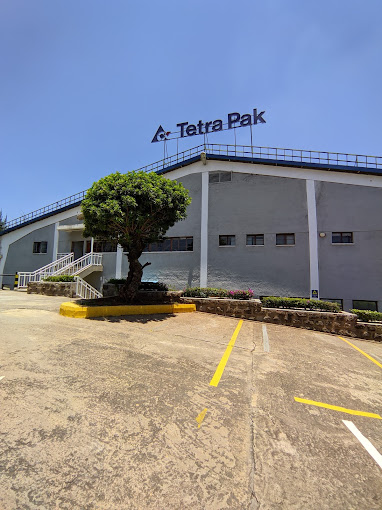In an increased effort to drive collection and recycling, Tetra Pak East Africa has joined a well-established Producer Responsibility Organisation (PRO), the Packaging Producer Responsibility Organisation – PAKPRO®. Tetra Pak’s membership commences on 23rd May 2023. The decision for Tetra Pak to join the PRO was driven by the need for greater collaboration to improve the collection and recycling of Liquid Board Packaging (LBP) in Kenya.
Tetra Pak’s initiatives on collection and recycling of LBP in Kenya are well aligned and support the recent events following the gazettement of the Sustainable Waste Management Act, 2022. Further, the Ministry of Environment and Forestry has been working on the development of the Extended Producer Responsibility Regulations (EPR), and this is an important step in developing further the Waste Management policies in the country, engaging all the actors in the value chain.
Tetra Pak has been actively engaging all stakeholders, including the government, PROs, collectors, and recyclers, and taking the lead to support the development of a strong ecosystem for collection and recycling of carton packages.
PAKPRO has a successful track record in supporting recycling value chains in Kenya. PAKPRO will be administering an EPR scheme to cater for the LBP sector from June month 2023, in addition to the other EPR schemes already being offered by PAKPRO.
Appeal Court orders woman to share her property with lover she hosted
As part of this joining of forces, Tetra Pak and PAKPRO commit to improving awareness by increased educational activities among the Kenyan public on issues related to segregation and collection. In addition, the scheme will be implementing a model for value chain support to stimulate collection and increase end-use demand for recycled content. There is already existing recycling capacity and infrastructure in the country that has been developed over the years, and the intended model will seek to maximize use of this.
Recycling is at the centre of a low-carbon circular economy that aims to reduce waste and keep materials in use for longer. LBP can be recycled and transformed into a wide range of new products. However, segregation at source, collection and sorting are critical for recycling to work. Tetra Pak believes that EPR regulations are essential and in line with the company’s ambitions of improving the recycling value chain.
The success of a circular economy requires collaboration beyond the traditional boundaries of business operators. Our partnership with PAKPRO® will ensure that both partners bring together a network of producers, collectors, suppliers, and other key stakeholders to develop circularity of LBP in the country.
Jonathan Kinisu, Tetra Pak East Africa Managing Director, commented:
General
“A critical pillar of our sustainability strategy is founded on our commitment to a low-carbon circular economy. At Tetra Pak, we are acutely aware of the broader impact of our operations on the environment and society and as such we are always striving to find more progressive ways to continue protecting what’s good.
As Tetra Pak East Africa we are proud to be joining forces with other stakeholders, which will help us unite to build a circular economy together in Kenya. Our commitment is towards people and the environment which is connected to
‘Producing Responsible Products’.
Packaging has and continues to offer essential functionalities: protecting food and beverages, allowing their safe use and transport, and preventing food wastage. The beverage carton industry believes that packaging can, and should, contribute to mitigating the biggest global challenge: climate change, while not compromising on food safety.”
Joyce Gachugi – Waweru, Packaging Producer Responsibility Organisation, CEO, commented:
“We are pleased to welcome Tetra Pak East Africa into our membership today. The alignment of the mission and vision of both organizations toward increasing the collection and recycling of liquid board packaging is coming together. As we seek to leverage each other’s networks in strengthening the LBP value chain in the country, we are keen to ensure that more than just compliance is met for Tetra Pak,
but that they too can participate in scaling the impact we have developed over the last 5 years by creating decent jobs for waste collectors, diverting post-consumer packaging from the landfills and dumpsites into the production of new materials. Our belief continues to be that at the sweet spot where people, profit and planet meet, then communities and businesses can operate optimally.”









